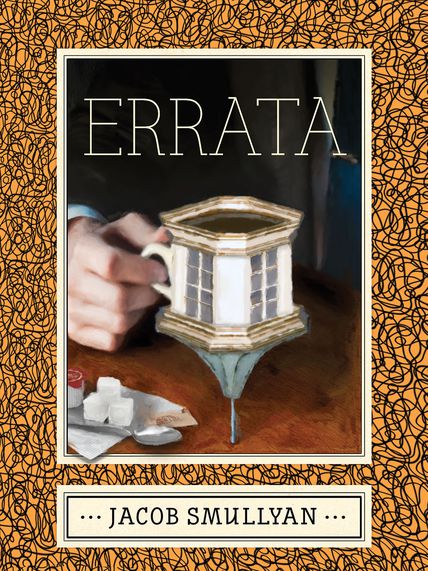
Jacob Smullyan’s Errata, a series of thirty tiny, enigmatic stories and essays by the author of Dribble, is a text, or so it itself claims in its opening lines, that consists solely of errors. Towards its end, after we have experienced the existential agonies, both climactic and quotidian, of several apparently overlapping characters ("S.”, “Z.”, “Sanders”, “Zander"), and drunk innumerable cups (or are they cupolas?) of coffee, it comes to assert that error may be a mode either of revelation or delusion. Which process is at play here? Can we decide? And if, as the text elsewhere states, we can neither seek truth nor illusion, can we seek anything at all—even to exit this maze? Or can we, like another character, only patiently mediate their interminable dispute as a form of prayer, with no purpose, perhaps, other than obedience to fate, or a certain subterranean satisfaction in behaving according to a deep intuition, an inner voice, “the only peace we have"—or is that another of the book’s deliberate errors?
Tantalizing, allusive, and harrowing, Errata is a meditation on the psychology of scepticism and on the role of art in addressing the essential paradox of suffering and joy.
Read an excerpt.
Notices
“It almost feels like the clarity, brevity, and intimacy of Errata was somehow left out of a lot of the dense and important works being discussed these days. You’ll be glad in this sense that you read the errata.”
—Christopher Carter Sanderson in The Huffington Post
“To describe a book as unclassifiable is, of course, to classify it, but that fact is entirely in keeping with the spirit of Jacob Smullyan’s Errata….”
